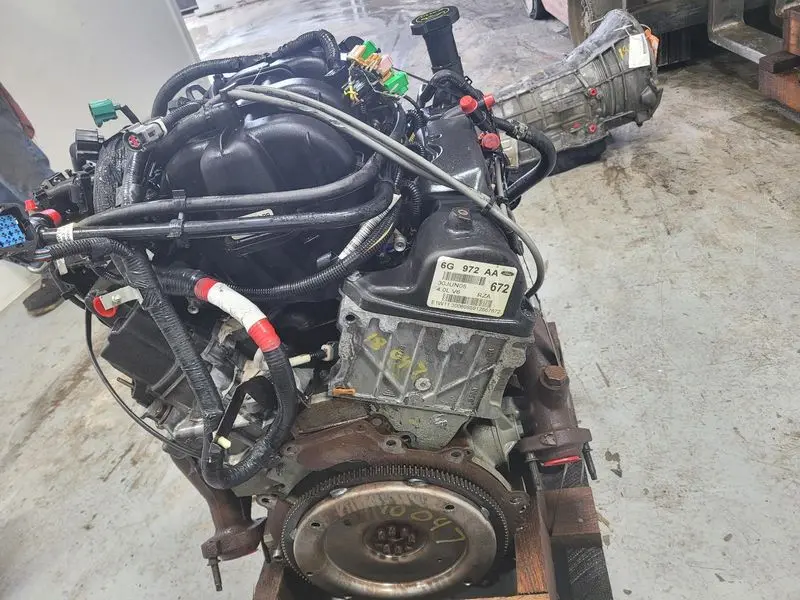Get to Know the Power and Reliability of the 2.2 Ford Ranger Engine for Any Job
Get to Know the Power and Reliability of the 2.2 Ford Ranger Engine for Any Job
Blog Article
What Makes a Vehicle Engine Run Smoothly: Leading Tips for Optimum Care
The smooth procedure of a car engine is basic to both efficiency and durability, making optimal care a necessary responsibility for car owners. What specific actions should you focus on to ensure your engine remains in peak condition?
Normal Oil Modifications
One of the most essential aspects of car upkeep is ensuring your engine receives routine oil changes. Engine oil lubes interior components, reduces rubbing, and helps keep ideal operating temperatures. With time, oil weakens as a result of warm, contaminants, and the all-natural by-products of burning, resulting in minimized effectiveness and prospective engine damages.
The majority of suppliers recommend transforming the oil every 5,000 to 7,500 miles, yet this interval can vary based on driving problems and oil type. Artificial oils may permit for longer intervals between adjustments. Normal oil changes not just boost engine performance however also boost fuel efficiency, as clean oil promotes smoother operation.
Neglecting oil adjustments can cause sludge accumulation, which harms circulation and can lead to extreme engine issues. It is important to inspect oil degrees on a regular basis and keep track of for any kind of uncommon adjustments in shade or consistency, which could show contamination or deterioration.

Keeping Coolant Degrees
Keeping appropriate coolant levels is crucial for avoiding engine overheating and making certain optimal efficiency. The coolant, normally a combination of water and antifreeze, circulates via the engine, taking in warm and protecting against thermal tension. Not enough coolant can result in boosted engine temperatures, which may trigger serious damage or even total engine failure.
To keep ideal coolant degrees, consistently evaluate the coolant storage tank, normally situated in the engine bay. Guarantee the coolant is filled to the recommended mark, as shown in your lorry's owner manual. It is suggested to examine the levels at least as soon as a month or soon journeys, specifically during extreme weather.
If you notice that the coolant level is consistently reduced, there may be a leakage in the cooling system, which should be resolved immediately to stop more issues. 2.2 ford ranger engine. Furthermore, flushing the coolant system every 2 to 3 years can assist get rid of any kind of accumulated particles and make certain effective warmth exchange
Checking Air Filters
It is recommended to check the air filter every 12,000 to 15,000 miles, or extra regularly if driving in dirty or adverse conditions. A basic visual inspection can frequently expose whether the filter is filthy or damaged. It should be changed promptly. if the filter appears tarnished or has noticeable dirt build-up.
Utilizing a high-quality air filter made for your particular vehicle version can additionally improve engine efficiency. In addition, some vehicles may take advantage of reusable filters that can be cleansed and reinstalled, offering a economical and eco-friendly alternative.
Inspecting Flicker Plugs
Spark plugs are vital elements of a car's ignition system, directly impacting engine efficiency and performance. They produce the stimulate that fires up the air-fuel mix in the combustion chamber, facilitating the engine's power generation. Regular inspection of ignition system is critical for preserving ideal engine function and protecting against possible problems.
During an inspection, seek indications of wear or damage, such as splits, carbon accumulation, or extreme gap widening. A healthy and balanced ignition system generally shows a light brownish or tan color. Dark residue or oil deposits can indicate inappropriate combustion, while a white or blistered appearance might suggest overheating. Both problems require prompt interest to avoid more engine damage.
It's recommended to evaluate ignition system every 30,000 miles, or This Site as recommended in your lorry's owner handbook. Additionally, think about changing them according to the producer's standards, as old or worn trigger plugs can result in misfires, lowered fuel effectiveness, and increased discharges.
Surveillance Tire Pressure
Under-inflated tires can lead to reduced fuel effectiveness, boosted tire wear, and endangered handling. Normal surveillance of tire stress is essential for optimal car procedure.
Tire stress must be inspected a minimum of as soon as a month and soon trips. Utilize a trusted tire stress scale to determine the pressure when the tires are cold, ideally before the find this vehicle has been driven for at the very least 3 hours. Describe the lorry's proprietor handbook or the placard located on the chauffeur's side door jamb for the producer's recommended pressure degrees.
It is essential to keep in mind that tire pressure can vary with changes in temperature level; a decline of 10 ° F can lead to a 1-2 psi reduction in pressure. Additionally, aesthetically check tires for any type of indications of wear or damage during your monitoring regimen. Keeping appropriate tire pressure not just boosts automobile safety yet additionally enhances fuel performance and extends tire life, ultimately contributing to a smoother engine efficiency.
Final Thought
To conclude, keeping a car engine's smooth procedure requires diligent focus to a number of key variables. Routine oil adjustments, appropriate coolant degrees, clean air filters, properly maintained ignition system, and ideal tire pressure jointly add to boosted efficiency and longevity. Adhering to these upkeep techniques not only enhances fuel performance yet additionally advertises a much safer driving experience. Eventually, a proactive strategy to engine care is crucial for guaranteeing dependability and performance gradually. 2.2 ford ranger engine.
One of the most essential elements of auto maintenance is ensuring your engine site link receives routine oil changes. Engine oil lubricates interior elements, lowers rubbing, and helps maintain optimal operating temperatures. Routine oil modifications not just boost engine efficiency yet additionally boost gas efficiency, as clean oil promotes smoother operation.
Insufficient coolant can lead to raised engine temperatures, which may trigger serious damage or even total engine failing.
.jpg)
Report this page